We have so many books on Shakespeare's works that it can be difficult to find the ones most relevant to your needs. Below is a guide to help you find the resources particular to your project.
To narrow your search for works about Shakespeare it helps to do an advanced, rather than a basic, search. (If you do a basic search for “Shakespeare, William” you will retrieve close to 3000 results.) In an advanced search you can enter Boolean terms to expand, exclude, or narrow your search. You can also define your search by format, if you're interested in e-books or films, or by location in the library, which is relevant if you want to limit your search to authoritative reference works. You can narrow your interest by entering “Shakespeare” as a subject term and adding keywords that pertain to your particular interest.
Note, the authorized term for Shakespeare as a subject is: Shakespeare, William, 1564–1616.
Your search for books might start in one of two places...
In both of these resources, you can use a Subject Search. This is very useful in literary research because it allows you to find all the books on an author, and only the books on that author.
For more information on subject searching, please see the general guide to literature research.
The library holds many books that can provide a deeper look at theoretical concepts. Besides general guides to theory, we have books on specific critical approaches.
A search of the subject headings is often effective. Like other authors, Shakespeare has his own subject heading:
If you start there and browse the subject headings, you will see many subject headings focusing on different aspects of Shakespeare's works. Some examples:
There are also headings focused on specific plays or genres:
It's also sometimes useful to consider the headings that let you see Shakespeare in context, like this:
Of course, you may have something more specific in mind than these topics that subject headings describe. This is where the Advanced Search comes in handy. You can combine a subject heading with whatever keyword you like.
So for instance, you could search "Shakespeare" as a Subject and "animals" as a keyword, to find all the books that are classified as being about Shakespeare that also happen to mention animals somewhere in their titles or subject headings.
--
Although all of these are real subject headings and you should feel free to use them, there are also many more. This is just a list of examples to help you get started and give you some idea what kinds of searches are possible.
Since books in the library are organized by topic, it is often useful to browse the shelves near a useful volume.
Books on Shakespeare can be found in these call ranges:
Early in that range, books are organized based on the plays that they analyze, and after that, you will find more general or thematic criticism.
You may also want to see the following call ranges:
Reference books will be on Level 3; most other books in these call ranges are on Level 5.
